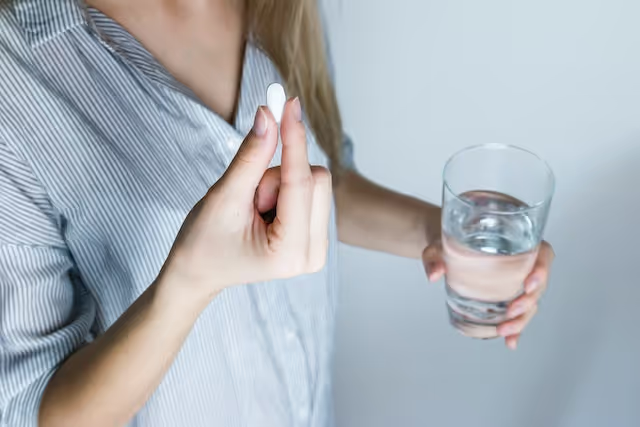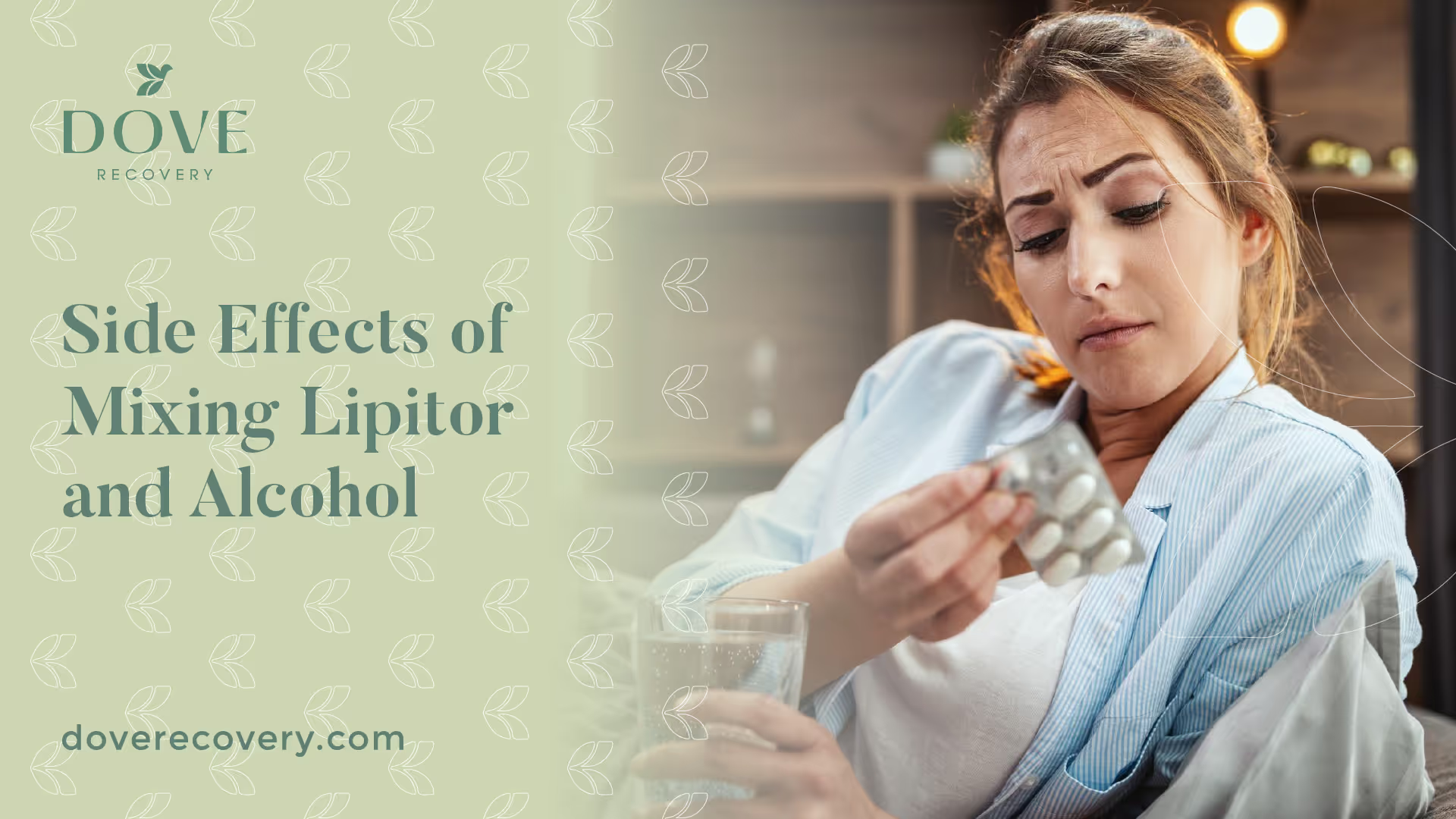Side Effects of Mixing Lipitor and Alcohol

Lipitor and Alcohol: A Potentially Dangerous Combination
When it comes to mixing Lipitor and alcohol, caution is advised. Both Lipitor, a commonly prescribed medication for managing cholesterol levels, and alcohol can have significant effects on the body. Understanding the interaction between the two is essential for making informed choices regarding their consumption.

Understanding Lipitor
Lipitor, also known by its generic name atorvastatin, belongs to a class of medications called statins. It is primarily used to lower cholesterol levels and reduce the risk of cardiovascular diseases. Lipitor works by inhibiting an enzyme involved in cholesterol production, ultimately leading to a decrease in cholesterol levels in the bloodstream.
It's important to note that Lipitor is generally prescribed for long-term use, and its effectiveness is maximized when taken consistently as directed by a healthcare professional.
The Effects of Alcohol on the Body
Alcohol, when consumed, affects various systems within the body. It is a central nervous system depressant that can induce relaxation and impair cognitive and motor functions. Alcohol is primarily metabolized by the liver, where it is broken down into byproducts that can have detrimental effects on the body if consumed excessively.
Long-term excessive alcohol consumption can lead to a range of health problems, including liver damage, cardiovascular issues, and increased risk of certain cancers. Additionally, alcohol can interact with medications and alter their effects, potentially compromising their intended benefits.
Understanding both Lipitor and alcohol is crucial in recognizing the potential dangers of combining the two. In the subsequent sections, we will explore the specific interactions between Lipitor and alcohol, as well as the potential side effects of this combination. It is important to note that before making any changes to your medication or alcohol consumption, it is essential to consult with a healthcare professional.
Interactions Between Lipitor and Alcohol
When it comes to combining Lipitor and alcohol, it's crucial to understand the potential interactions and risks involved. Lipitor, a medication commonly prescribed to manage high cholesterol levels, can have adverse effects when consumed alongside alcohol.
Metabolism and Liver Function
Both Lipitor and alcohol are metabolized in the liver. Alcohol metabolism takes precedence over the metabolism of Lipitor, potentially leading to a delay in the breakdown and elimination of the medication from the body. This delay can result in higher levels of Lipitor circulating in the bloodstream, increasing the risk of side effects.
Moreover, alcohol consumption can impair liver function, compromising its ability to metabolize medications effectively. The liver plays a vital role in breaking down Lipitor and removing it from the body. When the liver is overwhelmed by the combined effects of Lipitor and alcohol, it may struggle to process the medication efficiently, further enhancing the risk of adverse reactions.
Increased Risk of Side Effects
Combining Lipitor with alcohol can significantly increase the risk of side effects associated with both substances. These potential side effects include:
1. Liver Damage: Both Lipitor and alcohol have the potential to cause liver damage independently. When used together, the risk of liver toxicity and liver function impairment is heightened. Individuals with pre-existing liver conditions or a history of alcohol abuse are particularly susceptible to these risks.
2. Increased Risk of Muscle Pain and Weakness: Lipitor can occasionally cause muscle pain and weakness as a side effect. Alcohol consumption can exacerbate these symptoms, potentially leading to more severe muscle-related issues. It is important to note that severe muscle pain or weakness should be reported to a healthcare professional immediately.
3. Heightened Effects on Cholesterol Levels: Lipitor is primarily prescribed to manage high cholesterol levels. However, excessive alcohol consumption can negatively impact cholesterol levels, particularly by increasing triglyceride levels. Combining Lipitor and alcohol can interfere with the effectiveness of the medication in managing cholesterol levels.
To ensure your safety and well-being, it is crucial to consult with a healthcare professional about the potential interactions and risks associated with mixing Lipitor and alcohol. They can provide personalized guidance based on your specific medical history and help you make informed decisions regarding your treatment plan.
Understanding the interactions between Lipitor and alcohol is essential for making responsible choices. It is advisable to practice moderation and responsible consumption of alcohol while taking Lipitor. Regular monitoring for warning signs and symptoms, such as liver problems or muscle-related issues, is also crucial. If you have any concerns or questions about the potential interactions between Lipitor and alcohol, do not hesitate to consult with a healthcare professional.
Potential Side Effects of Mixing Lipitor and Alcohol
Combining Lipitor and alcohol can have various detrimental effects on the body. It's important to be aware of these potential side effects to make informed decisions about alcohol consumption while taking Lipitor.
Liver Damage
The liver plays a crucial role in metabolizing both Lipitor and alcohol. When alcohol is consumed, the liver prioritizes its metabolism, leading to decreased efficiency in breaking down Lipitor. This can result in higher levels of Lipitor circulating in the bloodstream, potentially increasing the risk of liver damage.
Chronic alcohol consumption combined with Lipitor can have cumulative harmful effects on the liver, including inflammation, fatty liver disease, and even liver failure. It's important to note that individuals with pre-existing liver conditions are particularly susceptible to these dangers.
Increased Risk of Muscle Pain and Weakness
One of the common side effects of Lipitor is muscle pain and weakness, known as myopathy. Alcohol consumption can exacerbate these effects, potentially leading to a heightened risk of muscle-related complications. This combination may increase the likelihood of experiencing muscle-related adverse effects, such as muscle cramps, fatigue, and in severe cases, rhabdomyolysis.
Rhabdomyolysis is a rare but serious condition characterized by the breakdown of muscle fibers, releasing toxic substances into the bloodstream. It can result in kidney damage and other life-threatening complications.
Heightened Effects on Cholesterol Levels
Lipitor is primarily prescribed to lower cholesterol levels. However, alcohol consumption can interfere with the effectiveness of the medication. Alcohol consumption can raise triglyceride levels and decrease the overall effectiveness of Lipitor in managing cholesterol.
Additionally, excessive alcohol intake can contribute to an unhealthy lipid profile, leading to an increased risk of cardiovascular diseases. It's important to note that alcohol itself can have negative effects on cholesterol levels, even without the interaction with Lipitor.
Understanding the potential side effects of mixing Lipitor and alcohol is essential for individuals who are taking this medication. It is strongly recommended to consult with a healthcare professional to discuss the risks and benefits of alcohol consumption while on Lipitor. Moderation and responsible consumption are key, and monitoring for warning signs and symptoms is crucial to ensure the well-being of your health.
Precautions and Recommendations
When it comes to the potential dangers of mixing Lipitor and alcohol, it is important to take certain precautions and follow recommendations to safeguard your health. Here are some key measures to consider:
Consultation with a Healthcare Professional
Before consuming alcohol while taking Lipitor or any other medication, it is essential to consult with a healthcare professional. They can provide personalized advice based on your specific medical history, current health condition, and the dosage of Lipitor you are prescribed.
A healthcare professional can assess the potential risks and benefits of consuming alcohol while on Lipitor, taking into account factors such as your liver function, overall health, and any other medications you may be taking. They can offer guidance on whether it is safe for you to consume alcohol and if there are any specific precautions or restrictions you should follow.
Moderation and Responsible Consumption
If your healthcare professional determines that it is safe for you to consume alcohol while taking Lipitor, it is crucial to do so in moderation and practice responsible consumption. This means adhering to recommended limits for alcohol intake to minimize potential risks and adverse effects.
The Centers for Disease Control and Prevention (CDC) defines moderate drinking as up to one drink per day for women and up to two drinks per day for men. It is important to note that these guidelines might vary depending on individual circumstances, so it is advisable to follow the recommendations provided by your healthcare professional.
Monitoring for Warning Signs and Symptoms
While taking Lipitor and consuming alcohol, it is vital to monitor your body for any warning signs or symptoms of adverse effects. Pay close attention to how you feel both during and after consuming alcohol. If you experience any unusual symptoms or side effects, such as severe muscle pain, weakness, yellowing of the skin or eyes, or changes in urine color, it is essential to seek immediate medical attention.
Regular monitoring of liver function through blood tests may also be recommended by your healthcare professional to ensure that your liver is functioning properly while taking Lipitor and consuming alcohol.
By following these precautions and recommendations, you can help minimize the potential risks and dangers associated with mixing Lipitor and alcohol. Remember, the information provided here is general, and it is important to consult with a healthcare professional for personalized advice regarding your specific situation.
Moderation and Communication
When it comes to the potential risks of mixing Lipitor and alcohol, moderation and open communication play a crucial role in maintaining your health. It's important to understand the concept of moderation when it comes to responsible drinking and to discuss your alcohol consumption with your doctor.
Moderation and Responsible Drinking
Moderation refers to the practice of consuming alcohol in a responsible and controlled manner. The recommended guidelines for moderate alcohol consumption vary depending on factors such as age, gender, and overall health. It's essential to be aware of these guidelines and to adhere to them to minimize potential risks and maintain your well-being.
The following table provides general guidelines for moderate alcohol consumption:

It's important to note that these guidelines may not be suitable for everyone, especially individuals with certain medical conditions or those taking medications like Lipitor. For specific recommendations tailored to your health needs, it's best to consult with your healthcare provider.
Discussing Alcohol Consumption with Your Doctor
Having an open and honest conversation with your doctor regarding your alcohol consumption is crucial, especially if you are taking Lipitor or any other medication. Your doctor can provide personalized advice and guidance based on your individual health profile.
During your discussion, be prepared to provide detailed information about your alcohol consumption habits, including the frequency and quantity of alcohol you consume. This will help your doctor assess any potential risks and offer appropriate recommendations.
Your doctor may consider factors such as liver function, lipid levels, and the potential interactions between Lipitor and alcohol. They may advise you to limit or avoid alcohol altogether, depending on your specific circumstances. It's important to follow their guidance to ensure the safety and effectiveness of your treatment.
Remember, open communication with your doctor is key. Don't hesitate to ask any questions or express any concerns you may have about drinking alcohol while taking Lipitor. Your doctor is there to provide you with the necessary information and support to make informed decisions about your health.
By practicing moderation and maintaining open communication with your doctor, you can navigate the potential risks associated with mixing Lipitor and alcohol more effectively. Prioritizing your health and making informed choices will contribute to your overall well-being.
Conclusion
In conclusion, mixing Lipitor and alcohol can have significant adverse effects on the body. The liver is particularly vulnerable to damage, as both substances are metabolized in this organ. Additionally, combining Lipitor with alcohol can increase the risk of muscle pain and weakness, as well as interfere with the medication's effectiveness in managing cholesterol levels.
To minimize potential risks and ensure your safety, it is crucial to consult with a healthcare professional before consuming alcohol while taking Lipitor. Moderation and responsible consumption are key, and regular monitoring for warning signs and symptoms is essential. By following these precautions and recommendations, you can maintain your health while still enjoying alcohol in moderation.
